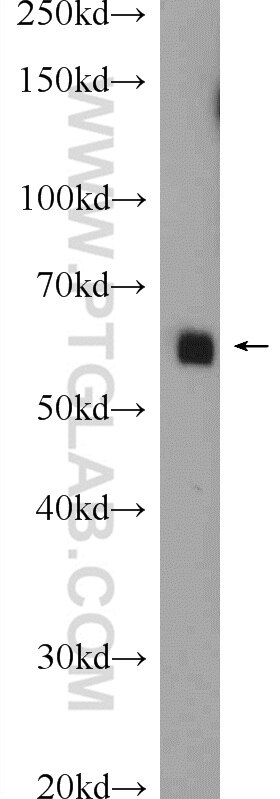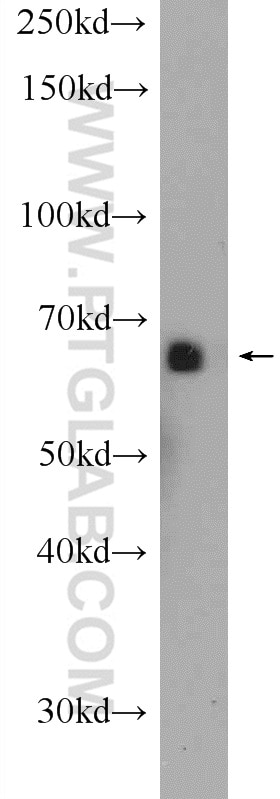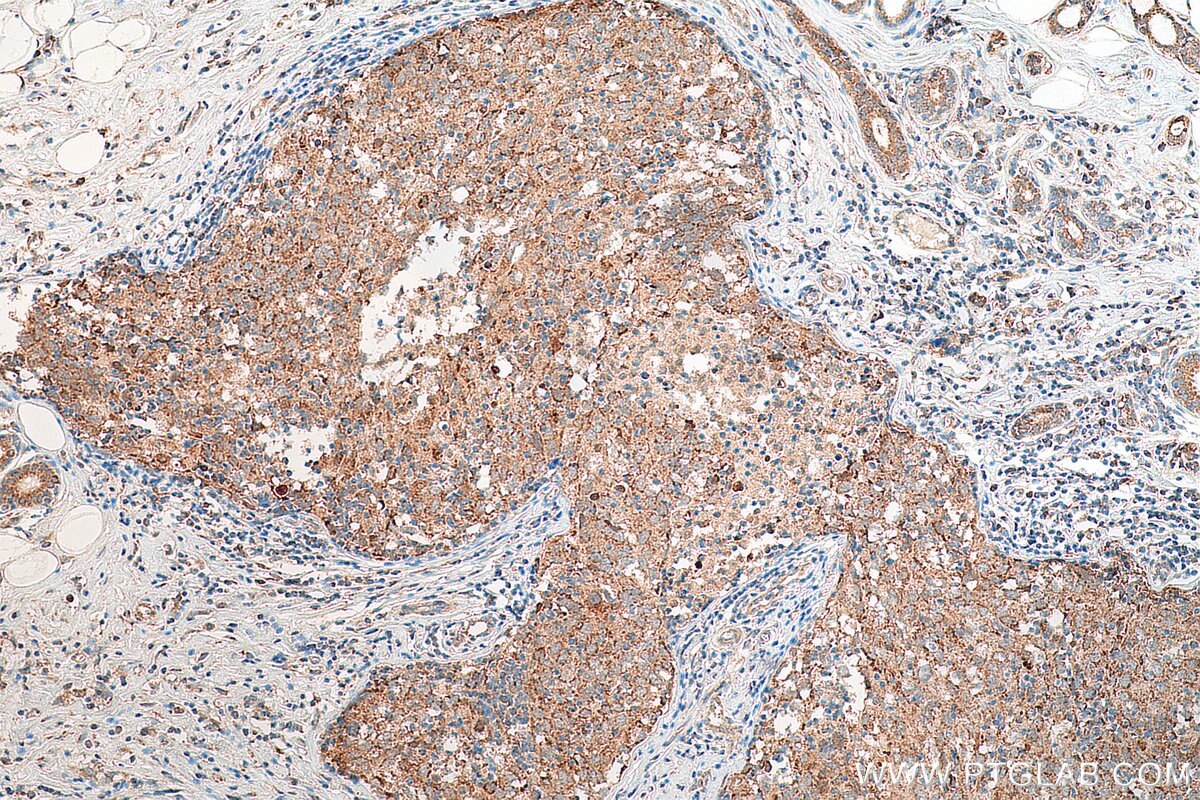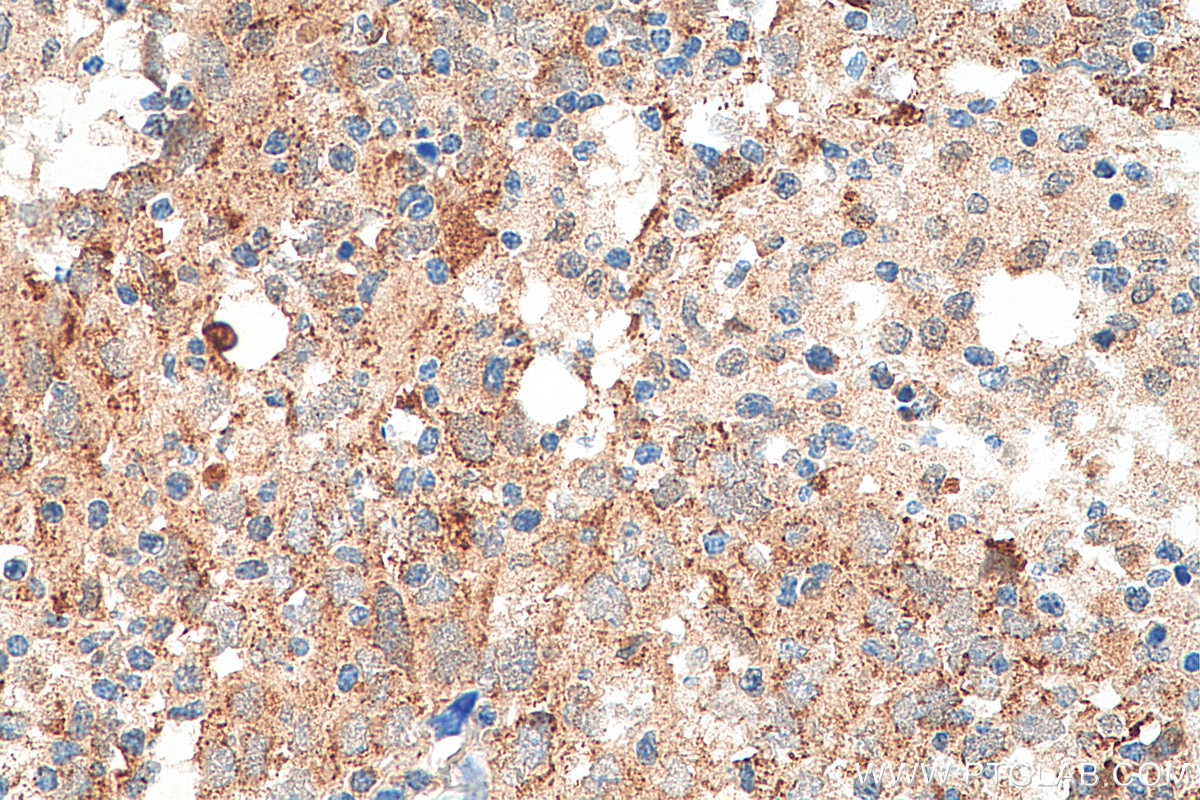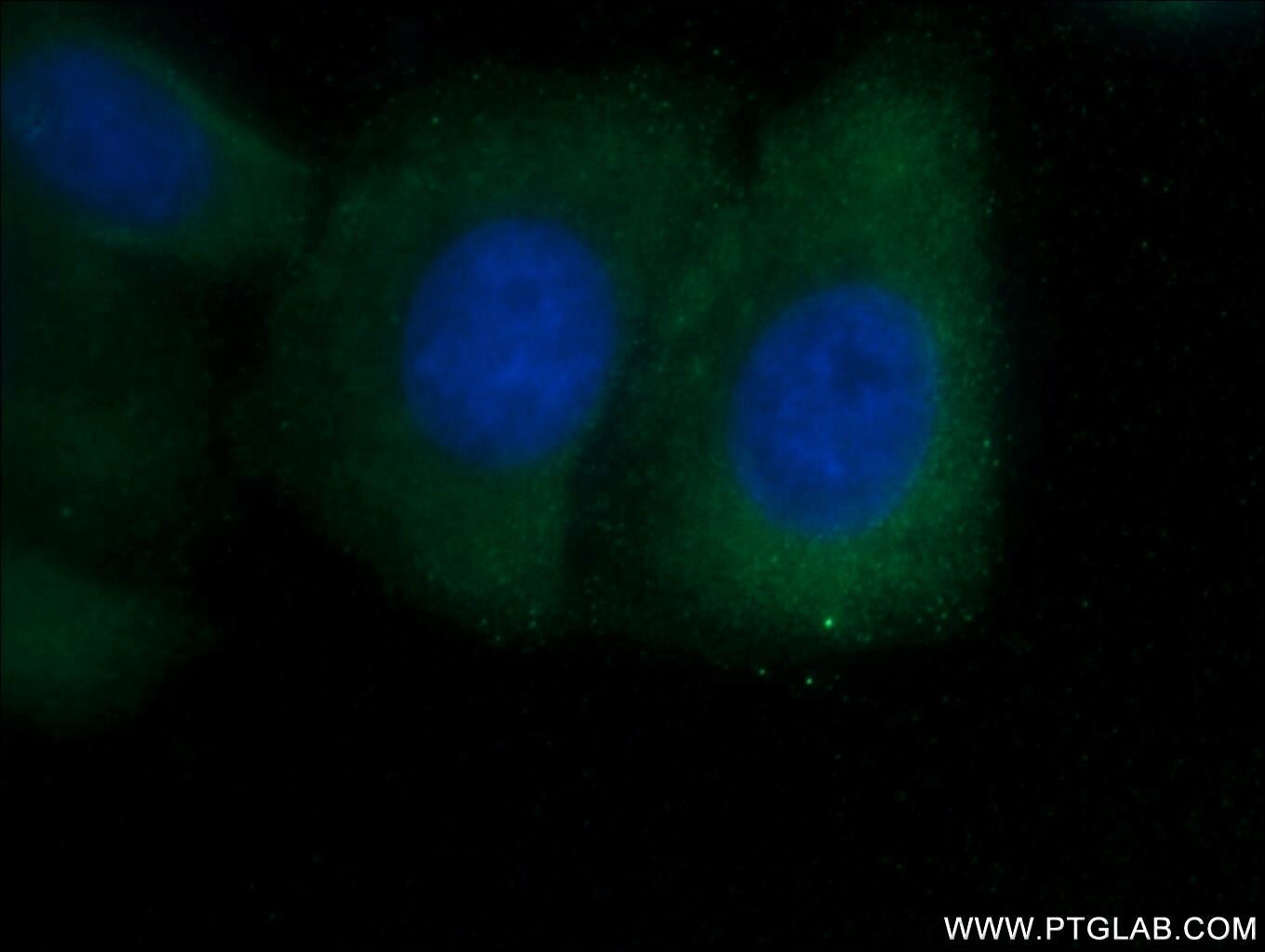Tested Applications
| Positive WB detected in | mouse testis tissue |
| Positive IHC detected in | human breast cancer tissue Note: suggested antigen retrieval with TE buffer pH 9.0; (*) Alternatively, antigen retrieval may be performed with citrate buffer pH 6.0 |
| Positive IF/ICC detected in | HepG2 cells |
Recommended dilution
| Application | Dilution |
|---|---|
| Western Blot (WB) | WB : 1:200-1:1000 |
| Immunohistochemistry (IHC) | IHC : 1:50-1:500 |
| Immunofluorescence (IF)/ICC | IF/ICC : 1:10-1:100 |
| It is recommended that this reagent should be titrated in each testing system to obtain optimal results. | |
| Sample-dependent, Check data in validation data gallery. | |
Product Information
22902-1-AP targets SHE in WB, IHC, IF/ICC, ELISA applications and shows reactivity with human, mouse samples.
| Tested Reactivity | human, mouse |
| Host / Isotype | Rabbit / IgG |
| Class | Polyclonal |
| Type | Antibody |
| Immunogen |
Peptide Predict reactive species |
| Full Name | Src homology 2 domain containing E |
| Calculated Molecular Weight | 54 kDa |
| Observed Molecular Weight | 55 kDa |
| GenBank Accession Number | NM_001010846 |
| Gene Symbol | SHE |
| Gene ID (NCBI) | 126669 |
| RRID | AB_2879185 |
| Conjugate | Unconjugated |
| Form | Liquid |
| Purification Method | Antigen Affinity purified |
| UNIPROT ID | Q5VZ18 |
| Storage Buffer | PBS with 0.02% sodium azide and 50% glycerol, pH 7.3. |
| Storage Conditions | Store at -20°C. Stable for one year after shipment. Aliquoting is unnecessary for -20oC storage. 20ul sizes contain 0.1% BSA. |
Background Information
SHE, also known as SH2 domain-containing adapter protein E, is a 495 amino acid protein whose molecular weight is 54 kDa. The function of SHE remains unknown. This antibody specifically recognises the 54 kDa protein.
Protocols
| Product Specific Protocols | |
|---|---|
| IF protocol for SHE antibody 22902-1-AP | Download protocol |
| IHC protocol for SHE antibody 22902-1-AP | Download protocol |
| WB protocol for SHE antibody 22902-1-AP | Download protocol |
| Standard Protocols | |
|---|---|
| Click here to view our Standard Protocols |

